Glossary
Logout
©Copyright Arcturus 2022, All Rights Reserved.
7
Terms & Conditions
|
|
|
|
Security & Privacy
Contact
INNOVATION PHASE
|Product LifeCycle Planning Framework - Innovation Phase
'Innovation is not just about having good ideas, it's about managing new ideas, improving old ideas, understanding and anticipating markets and technologies'
Innovation ultimately means you keep ahead of the competitors via a differentiated product offering (or the way the product is offered). New technologies and new products / services will provide far more business opportunities than by any other means. Innovation also means applied creativity, in other words, an idea is not ‘innovative’ until its representative of something ‘actual’.
The Innovation Management phase is primarily an activity for both generating and managing strategically aligned business ideas. Concepts and products emerging from this phase will be screened accordingly for (target market) suitability before being presented to a peer review group for acceptance and further development.
The type and content of the proposed idea will ultimately determine how it will be taken forward into subsequent phases of the product management process hereinafter. For example, a successful ‘New Product’ idea from the IMP phase will proceed to the Conceptual and Planning Phase and thereafter subsequent phases within the overall process. Alternatively, if the idea can be utilised directly in an existing product it will follow an appropriate route via the product enhancement process and ultimately join its product host in the Active LifeCycle Phase.
Successful Product Innovation requires more than the ability to create ideas and good design. It requires a competitive organisation. Success in today’s extremely competitive environment requires excellence and focus throughout the organisation — all areas of activity. Such as strategy, product management, design, manufacturing, sales and service must contribute to the success of a new product. The sum of the parts in terms of capabilities must align to genuine core competencies.
|Innovation Management Plan

|Innovation Management ~ Alignment and Tips
Long-term innovation may mean spending time and money 5 to 10 years ahead of market introduction.
This is a real challenge as market research is either based on systematic interviewing or on the interpretation of quantitative and qualitative information gathered from the actual market. The best we can expect from market research is an intelligent and realistic extrapolation of trends or the spotting of less visible undercurrents.
Real growth and new opportunities have always come from technical or technological breakthroughs resulting from the vision of those who were directly involved in the field where the breakthroughs took placed, and the vision of those who were responsible for funding the activity. It is only when these two visions meet in mutual confidence that there is any chance of success. In both article teams and business units, this climate of mutual confidence and understanding is a prerequisite for sustaining the long-term effort needed for a technical breakthrough.
Following the competition means being always too late. ...draw your own lines into the future.
Keeping a sharp eye on the competition is essential. A constant watch on the most dangerous competitors must provide evidence about their marketing strategy, their product policy, their management structure and their successes and failures. This may provide a basis for anticipating the future actions of the competition, as an alternative for reacting to existing products. Reacting to existing products means taking a decision that the competition has already taken between one and three years ago and the result will be a backlog in the finished product programme of two years or more. This is not a valid strategy for catching up. The only realistic way out of this scenario is to draw a strategy line into the future that crosses the projected line of the competition at some point. Imitating the competition is one of the most dangerous pitfalls. It inevitably leads to a disoriented organisation.
Innovation Management - ...a Perpetual Activity.
As you can see from the diagrams below, the Innovation Phase completely surrounds the other 5 phases of Product Management and is by definition a perpetual activity - it should definitely not be seen as a 2 week 'think and sprint' prior to a new product development project. Strategically, the role of Product Management is to manage the Product across it's entire life cycle with the objective of maintaining its product position within the target market. Depending upon the market itself, this will inevitably require enhancements and tweaks that ensures it remains competitive as long as possible against competing offers.



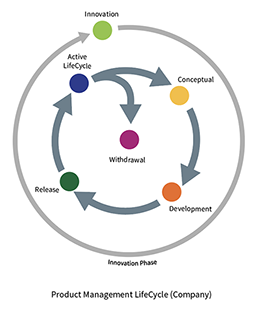
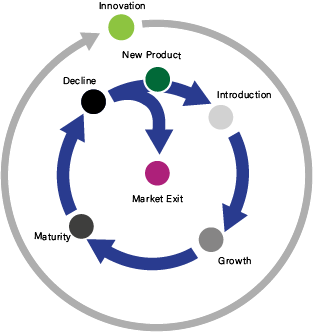
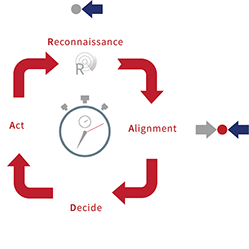
RADAR - Continuous Improvement
|PMM Business Planning Framework - Orientation
‘Click’ on the matrix ‘element’ for aligned programme planning information…
|Phase Vision / Goal
Perpetual Creativity > Innovation Optimisation Programme
839x411.png?crc=195252474)
Innovation Management Phase
- Appraisal and Strategic Alignment Framework
- Programme Resource and Core Competence Alignment
- Strategically Managed (Target Market) Communications and Awareness
- Idea Compliance and Design Protection - Competitive Advantage
|Process Requirements - Objectives and Activities
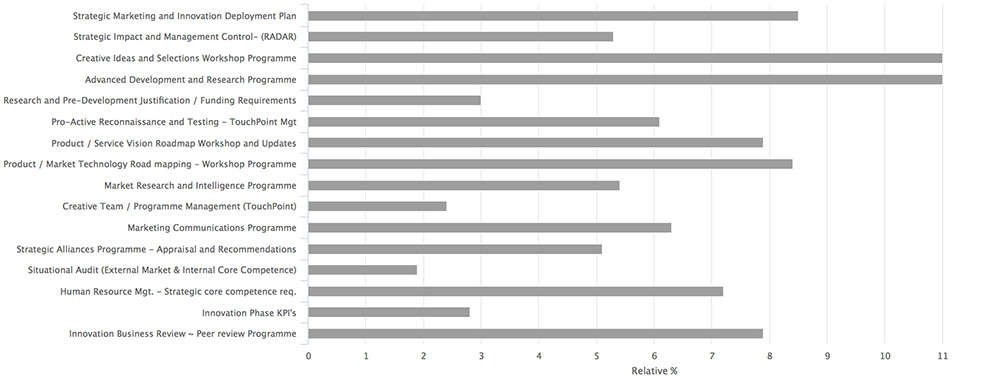
Strategic Tools and Processes
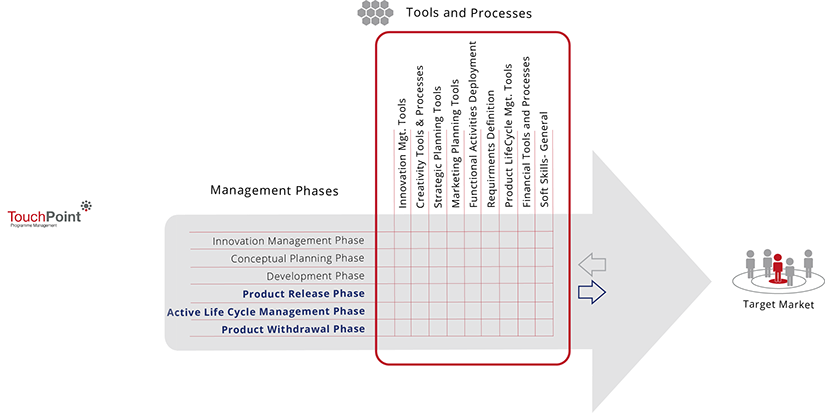
Innovation Management Phase
Strategic Planning Tools / Processes
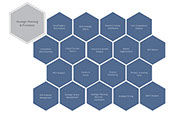
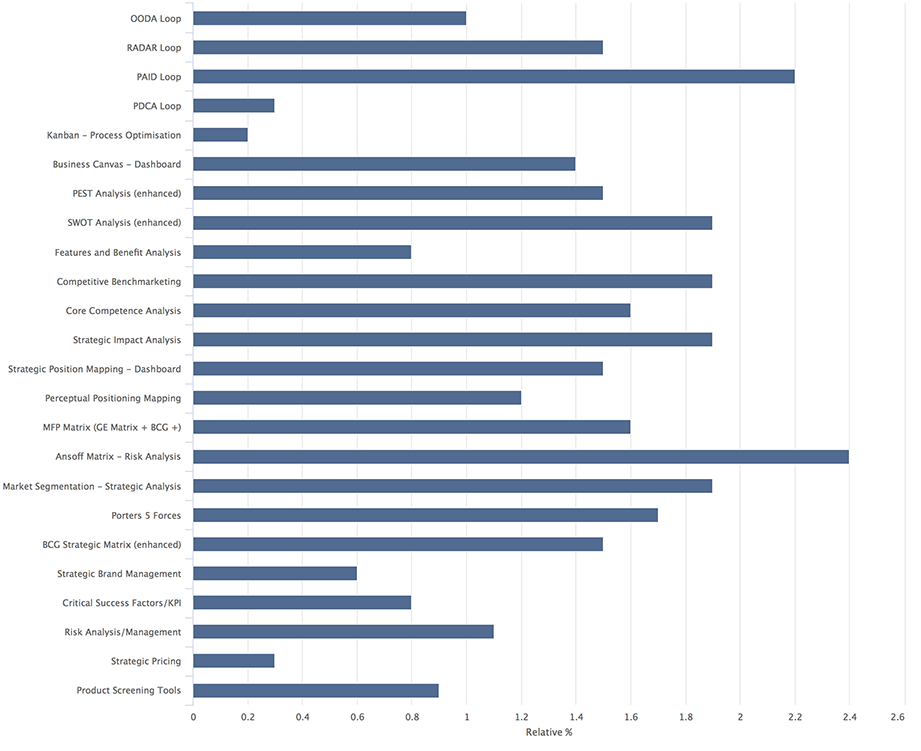
Stakeholder Management

Marketing Planning / Process Tools


Creativity / Process Tools


PLC Management & Planning Tools
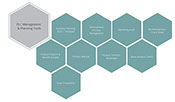

Requirements Definition


Financial Tools / Processes


Innovation Management


Functional Activities / Deployment
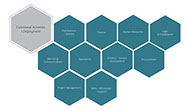

Product Management (Soft) Skills
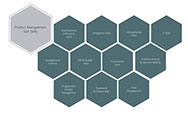

PM Specialist / Expert Knowledge - Innovation Phase


|Innovation Phase - Professional Support









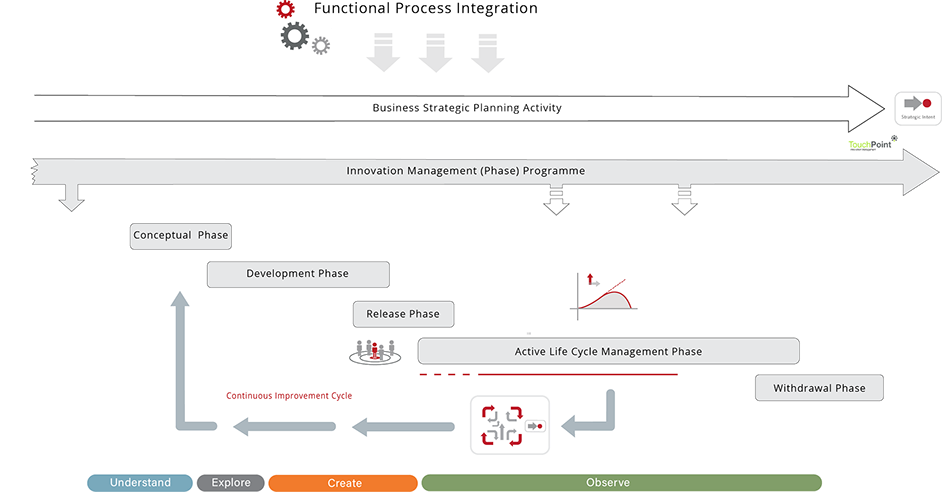

290x51.png?crc=428057808)



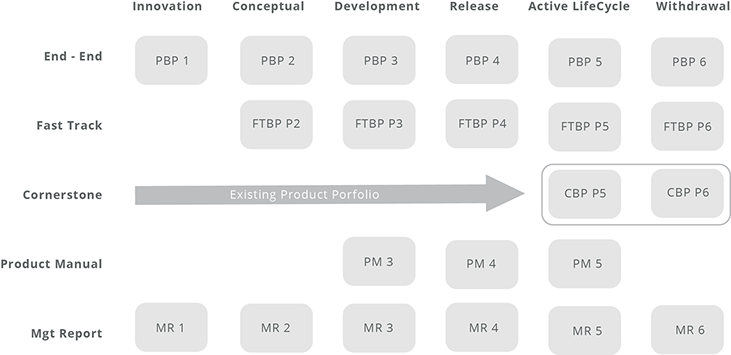
.png?crc=3847080596)
